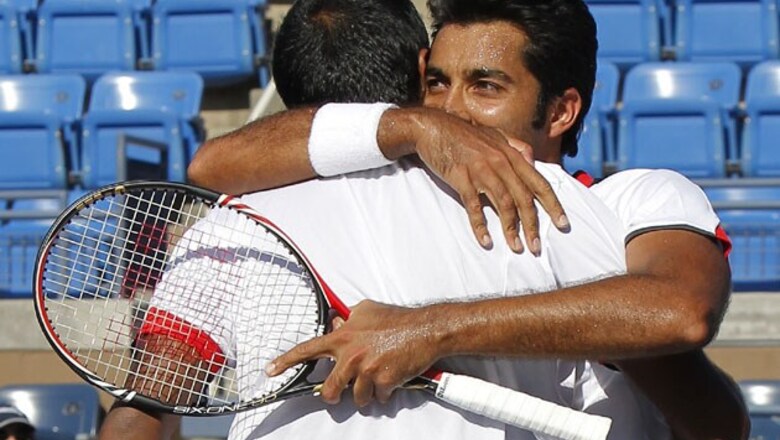
views
New Delhi: A country in doldrums. A country where the masses live more in hope and fear of the almighty than bread. Floods, bomb blasts, corruption and what not?
But all is not lost. A messiah rises from the ashes. Pakistan's cricket captain Salman Butt leads his team to victory against England in a Test match and wastes no time in dedicating the win to the millions caught by the wrath of nature in his motherland.
Everyone would like to believe that the worst is over and that things can only get better.
What follows is 'Nightmare On Elm Street'. A shocking tale of deceit and betrayal slowly unfurls. The grief-stricken public has been taken for a ride. They have been hoodwinked.
The match-fixing scandal involving their cricketers who are their heroes, their soldiers, have let an entire nation down. The people no longer know whether what they see is real. They don't know what or whom to believe.
The story is not all that different for their neighbours from across the border. They are no strangers to corruption or violence or natural disasters for that matter.
The two countries which was one under the colonists have been involved in three full-fledged wars and share a peculiar love-hate relationship which stretches over sixty years.
Enter two wannabes by the name of Rohan Bopanna and Aisam-ul-Haq Qureshi from either side of the LoC.
Amongst all the chaos and confusion involving India and Pakistan in sports and politics, the Indo-Pak tennis pair of Bopanna and Qureshi pull off a stunner by reaching the finals of the men's doubles event at the US Open.
"I have one question for everyone. If Bopanna and Qureshi can play together, why cannot India and Pakistan?" a quote by India's sports minister MS Gill which raises even more questions simply because there is probably no logical explanation to the fate of the two countries since partition in 1947.
So, the fairytale in progress of Bopanna and Qureshi at this strange hour brings up the question, what might have been in the world of sports had there been no 'partition'?
India are yet to find a genuine quick bowler in their cricketing history. Having said that India boast of some world class batsmen in Sachin Tendulkar, Rahul Dravid, VVS Laxman...
On the other hand while Pakistan have a barrage of fast bowlers, their batting line up tends to be suspect in bowler-friendly conditions.
Goosebumps will be the order of the day if one contemplates a team which has Tendulkar, Dravid, Laxman, Mohammad Amir, Mohammad Asif and Shoaib Akhtar in its line up.
Well, under the current 'fixing' atmosphere the reliability quotient over Asif and co. will be under a heavy cloud.
What about the years gone by, when leading all rounders Imran Khan, Kapil Dev and top batsmen Sunil Gavaskar and Javed Miandad could all have played under one flag.
Why just cricket?
With eleven hockey golds at the Summer Olympics and five World Cup titles between these two arch rivals, field hockey might have been redefined had the two countries been one.
Just think of 'player of the tournament' in the 1990 and 94 World Cups, Shahbaz Ahmed from Pakistan and India's Dhanraj Pillay playing together for one team.
What about Hassan Sardar (Pakistan) and Mohammed Shahid (India) who ruled the roost during the early eighties?
The two Khans from Pakistan, Jahangir and Jansher who won an astounding fourteen World Opens between them might have felt that they owned the game of squash at their peak.
Both could have been from the same land as World Chess Champion Vishwanathan Anand and Billiards legend Geet Sethi.
It would be a gross understatement to say that there is no dearth of sporting talent in either country. Alas, one can only marvel at the endless possibilities which are not a reality.
But let bygones be bygones and for the time being let's just pray for the success of Rohan Bopanna and Aisam Qureshi from both sides of the border.



















Comments
0 comment